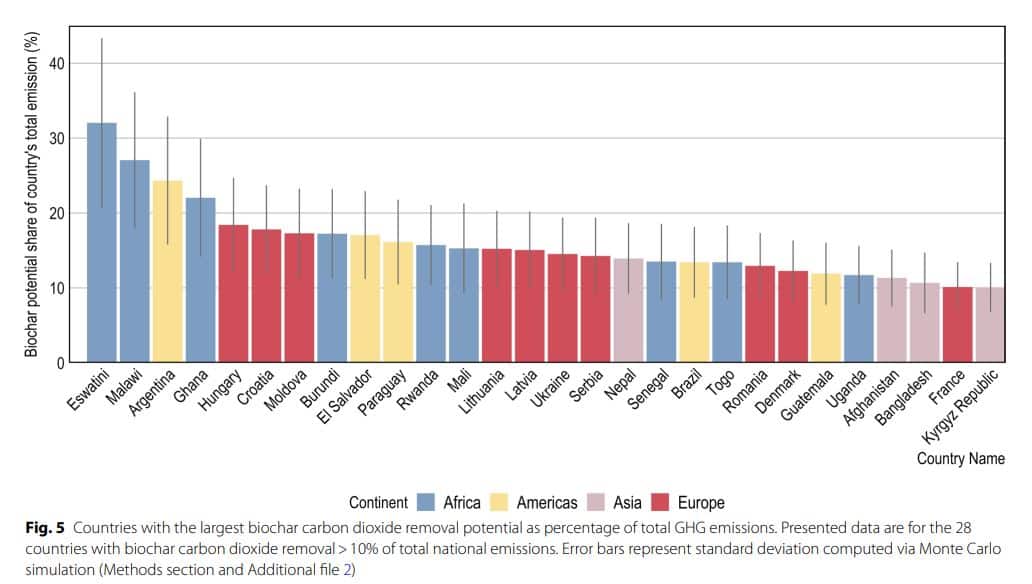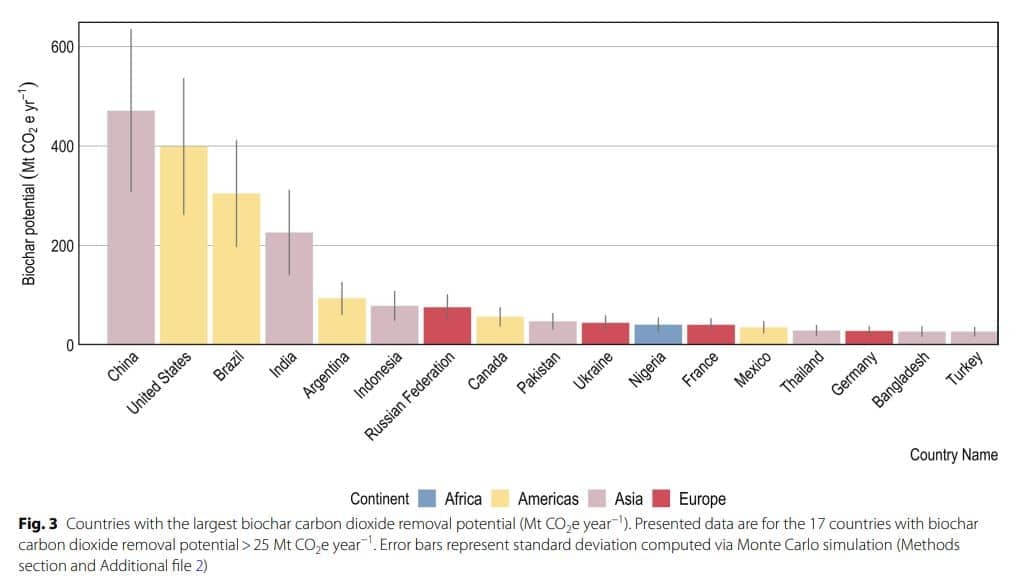Groundbreaking research highlights the potential of biochar as a solution for scaling carbon removal, benefiting both the environment and people. Biochar has the capacity to remove a significant portion of global emissions, providing a win-win solution for addressing climate change.
Developed thousands of years ago, biochar is a material made by heating organic matter like crop residues that would otherwise emit greenhouse gasses when decaying. By turning these organic materials into biochar, carbon gets trapped for hundreds to thousands of years.
Biochar does not only mitigate climate change but also enhances soil health, water retention, and nutrient levels, helping communities adapt to climate change’s effects.
Biochar’s Topnotch Removal Ability
Hailed as “nature’s black gold”, biochar has been building momentum yet growth is slow due to lacking attention and investment. But a new research reiterates the importance of this ancient farming practice in offering an accelerated pathway toward global decarbonization.
According to the peer-reviewed study, biochar has the potential to remove up to 6% of global emissions each year. This equates to about 3 billion tonnes of CO2, equivalent to the emissions of 803 coal-fired power plants a year.
Moreover, biochar offers a minimum removal potential of 10% in 25+ countries, primarily in Africa, South America, and Eastern Europe. Notably, it can cut down CO2 emissions by >30% in Eswatini and >20% in Malawi, Argentina, and Ghana. This potential is relative to the country’s total emissions as represented in the chart.
The world’s major emitters, including China, the United States, Brazil, and India, have the largest potential to lead the way in sustainable emissions reductions using biochar. Other countries with high biochar removal potential are shown below.
Quantifying Biochar’s Role in Climate Action
The study, published in the peer-reviewed journal Biochar and commissioned by the International Biochar Initiative (IBI), quantifies biochar’s carbon removal potential across 155 countries.
The results highlight biochar as an affordable, scalable, and readily available solution that also provides environmental and social co-benefits. Improved soil health and increased crop yields are among the various benefits of using biochar as a soil amendment.
Remarking on this breakthrough discovery, Dr. Thomas Trabold, co-author and research professor at the Rochester Institute of Technology said that:
“This is the first research to quantify the significant role biochar can play in worldwide climate action and carbon removal strategies… To scale biochar to its full potential, we now have a starting point of what is possible at the country level.”
The study findings also showed biochar’s relevance to small-emitting countries, which is particularly significant. It offers a sustainable approach to their climate change mitigation efforts.
While these countries are the least responsible for climate change, they’re disproportionately experiencing the impacts, from extreme drought to floods. Through biochar, they can maximize carbon removal while increasing national and local revenues, promoting sustainable agriculture, and providing employment opportunities.
For farmers encountering climate change issues, biochar would be particularly a game-changing solution.
Despite being referred to as “nature’s black gold,” biochar has faced historical challenges in terms of attention and investment. Addressing these bottlenecks requires collaboration at all levels to accelerate investment and amplify demand for biochar on a global scale.
A Call to Action
Recent developments in the industry are showing a promising outlook for this technology.
For instance, a leading carbon rating agency, BeZero Carbon, has given its first Biochar project the rare “A” rating. That means the project has a high likelihood of avoiding or removing 1 tonne of CO2.
This development signifies the maturation of carbon removal and particularly biochar, which accounts for >90% of all removal deliveries.
Moreover, a Canadian biochar producer has raised $38 million to expand production of this carbon removal technology. The company plans to produce biochar from compost or residual matters from municipalities.
With the upcoming international climate change conference, COP28, this scientific study serves as a compelling call to action for world leaders to consider biochar in their decarbonization strategies.
Biochar’s ability to sequester carbon while providing other benefits makes it a critical component of the climate change toolbox. It could be the time to accelerate its use to stay on a 1.5°C pathway.



